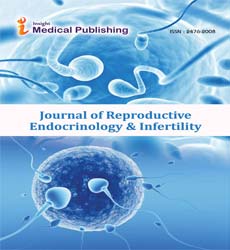Evaluation of Mobile Applications for Reproductive Endocrinology
Alice Domar
Alice Domar*
Domar Center for Mind/Body Health, Waltham, Harvard Medical School, Boston MA, USA
- *Corresponding Author:
- Alice Domar
Domar Center for Mind/Body Health, Waltham, Harvard Medical School, Boston MA, USA
E-mail: domar@domarcenter.com
Received Date: September 16, 2021; Accepted Date: September 22, 2021; Published Date:September 27, 2021
Citation: Domar A (2021) Evaluation of Mobile Applications for Reproductive Endocrinology. J Rep Endo Infert. Vol.6 No.5: 26.
Editorial
To identify and rate reproductive endocrinology and infertility (REI) mobile applications (apps) targeted toward REI providers. Design: an inventory of REI apps was found in both the Apple iTunes and Google Play stores using the subsequent seven MeSH terms: reproductive endocrinology, REI, infertility, fertility, In Vitro Fertilization, IVF, and embryology. Patient-centered apps were excluded. The remaining apps were then evaluated for accuracy using reliable references. Setting: Mobile technology. Patients/ Interventions: None. Main Outcome Measures: Accurate apps were evaluated for comprehensiveness (the extent of the power to assist in clinical decision-making) and rated with objective and subjective components using the APPLICATIONS rating system. Results: Using the seven REI-related MeSH terms, 985 apps and 1,194 apps were identified within the Apple iTunes and Google Play stores, respectively. Of these unique apps, only 20 remained after excluding patient-centered apps.
This study was exempt from the Institutional Review Board as the research did not involve or pose any risk to human subjects. A complete list of REI apps was compiled and included apps from the previous study by Farag et al.5 Using similar methodology for finding apps, REI MeSH terms were identified and updated supported the 2014 list of MeSH terms, and these terms were searched within the Apple iTunes store twice on December 4, 2014 and June 18, 2015 and once in the Google Play store on July 20, 2015.
The remaining apps were then classified into the subsequent subcategories: topic specific, journals, dictionaries, books, calculators, and sponsored educational apps. Journal apps were not rated as they all required a subscription and were electronic versions of the journal publication. Dictionary apps were also not rated as they included non-REI-specific terms. Books were excluded as they were the electronic version of the paper text. The rest of the apps, subsequently referred to as REI apps, were downloaded. Authors, K.L.S. and J.K., assessed the accuracy of the REI apps by checking the information and references cited within the apps to ensure that the information provided was correct. Inaccurate apps were excluded from further analysis.
In this study, only 0.32% of the 2,179 apps reviewed were considered useful to REI providers. Although this statistics is impressive, it is not surprising. In fact, the findings during this study are according to previous research during this field noting that a high proportion of apps weren't applicable to OB-GYN providers.5, 7 Most of the apps during this study were excluded thanks to being patient centered instead of inaccuracy of content, which had been demonstrated during a previous study.
We identified a very small number of apps that provide comprehensive, accurate user-friendly information, which can serve as a resource to REI providers. Periodic identification and evaluation of obtainable apps are important to assist update providers and advance mobile health technology in REI. Given the varying comprehensiveness and quality of obtainable apps, a scientific evaluation of provider centered apps is important before their use in clinical settings.
Open Access Journals
- Aquaculture & Veterinary Science
- Chemistry & Chemical Sciences
- Clinical Sciences
- Engineering
- General Science
- Genetics & Molecular Biology
- Health Care & Nursing
- Immunology & Microbiology
- Materials Science
- Mathematics & Physics
- Medical Sciences
- Neurology & Psychiatry
- Oncology & Cancer Science
- Pharmaceutical Sciences
